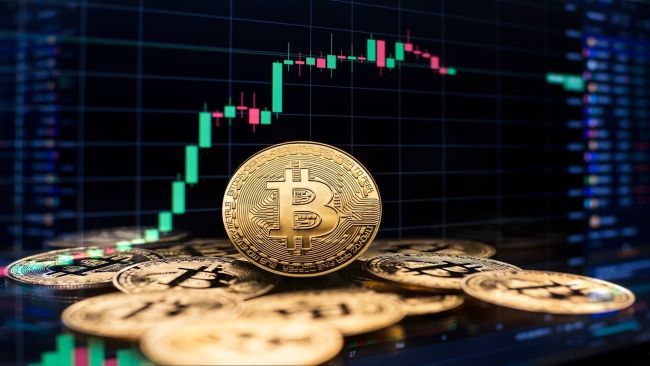Crypto Booms as Nigeria Records $50bn in Transactions — A Wake-Up Call for Capital Market Reform

Nigeria’s financial landscape is undergoing a quiet revolution.
Between July 2023 and June 2024, over $50 billion worth of cryptocurrency transactions flowed through the country — making Africa’s largest economy one of the world’s most active digital-asset markets.
Yet, beneath this staggering number lies a deeper paradox: Nigeria’s formal capital market participation remains below 4%, even as millions of citizens embrace digital currencies, betting platforms, and alternative investment ecosystems.
For a country rich in entrepreneurial energy and financial innovation, this divergence between crypto enthusiasm and capital market inertia signals both a challenge and an opportunity — to reimagine finance for an inclusion-driven future.
Crypto Surge: A Mirror of Nigeria’s Investment Potential
According to Dr. Emomotimi Agama, Director-General of the Securities and Exchange Commission (SEC), the scale of crypto activity demonstrates Nigerians’ strong appetite for risk and digital opportunity — but also reveals their lack of trust in traditional financial institutions.
“Fewer than three million Nigerians invest in the capital market, yet over 60 million participate in gambling daily,” Agama noted. “This reveals a paradox — the appetite for risk clearly exists, but not the trust or access to channel that energy into productive investment.”
The data speaks volumes.
While the Nigerian Stock Exchange struggles to attract new investors, Bitcoin, Ethereum, and other digital assets are witnessing record engagement from Nigerian users, ranking the country among the top 10 crypto economies globally.
The total market capitalization of crypto assets has risen by over 70% in the last year, with Bitcoin crossing $115,000 and Ethereum trading above $4,200, driven by global macroeconomic factors — from U.S.-China trade détente to anticipated Federal Reserve rate cuts.
For millions of Nigerians, crypto has become both a store of value and an escape valve from currency depreciation, inflation, and limited investment options.
The Capital Market’s Missed Opportunity
While crypto thrives, Nigeria’s market capitalization-to-GDP ratio remains around 30%, far behind peers like South Africa (320%), Malaysia (123%), and India (92%).
This underperformance, experts say, is a consequence of weak retail participation, limited financial education, and institutional inertia.
“We must reimagine our financial ecosystem,” Agama said. “The problem is not investor apathy — it’s structural exclusion and lack of innovation.”
The Capital Market Masterplan (2015–2025) — designed to position Nigeria’s capital market as a driver of economic growth — has achieved less than 50% of its targets, according to the SEC.
While initiatives like Green Bonds, Sukuk, and Fintech Integration have gained traction, the broader goals of deepening liquidity, expanding retail access, and mobilizing long-term finance for infrastructure remain elusive.
Nigeria’s Financial Paradox in Numbers
| Indicator | Value |
| Crypto Transactions (2023–2024) | $50 billion |
| Active Capital Market Investors | < 4% of adults |
| Gambling Participants | 60+ million |
| Daily Gambling Spend | $5.5 million |
| Market Cap-to-GDP Ratio | ~30% |
| Infrastructure Deficit | $150 billion annually |
| Approved PPP Bonds | ₦1.5 trillion |
These figures underline a core insight: Nigerians are not risk-averse — they are access-averse.
The regulatory, technological, and procedural hurdles that surround traditional investments have pushed a generation of tech-savvy Nigerians toward borderless financial platforms.
Crypto Momentum and the Global Context
Globally, crypto assets have rallied for five consecutive sessions, with Bitcoin and Ethereum posting 4.4% and 7.7% gains respectively.
The total crypto market cap has surged to $3.92 trillion, supported by improved investor sentiment, macroeconomic optimism, and institutional adoption.
Strategists attribute this rally to easing U.S.-China tensions, softening inflation data, and growing expectations of central bank rate cuts — creating an environment where risk assets thrive.
For Nigeria, this global rally amplifies local enthusiasm — further highlighting the need for clear, forward-looking regulation that balances innovation with investor protection.
From Regulation to Reinvention: The SEC’s Next Frontier
Dr. Agama’s call for a “reimagined SEC” signals a shift in mindset.
The Commission aims to transition from being seen as a bureaucratic watchdog to becoming an enabler of financial innovation, fostering synergy between traditional markets and digital finance.
“Vision without execution is inertia — and reform without measurement is aspiration without accountability,” he noted.
To rebuild investor confidence, the SEC is prioritizing:
- Deepening financial inclusion through retail investor education.
- Leveraging fintech to expand market access.
- Aligning capital market reforms with national infrastructure and SME financing needs.
- Engaging diaspora investors to mobilize global Nigerian capital.
Turning the Tide: From Crypto Curiosity to Capital Confidence
While the growth of crypto underscores Nigerians’ financial agility, the long-term goal must be to channel that energy into structured, productive investment avenues.
A capital market that speaks the language of the youth — mobile-first, transparent, and tech-integrated — can transform speculative enthusiasm into nation-building wealth.
With proper regulation, cross-sector collaboration, and investor education, Nigeria could bridge the gap between financial freedom and formal finance, unlocking billions in latent capital.
“The challenge,” BRANDECONOMY’s Investment Desk notes, “is not whether Nigerians can invest — it’s whether the system can inspire their confidence.”
BRANDECONOMY INSIGHT: The Dawn of Dual Finance
The ongoing crypto surge and the SEC’s reform drive reveal an emerging dual-finance reality in Nigeria — where digital assets and capital markets must evolve not as rivals, but as complements.
The future belongs to economies that integrate blockchain efficiency with market discipline, digital access with regulatory trust, and financial inclusion with institutional integrity.
Nigeria, sitting at the crossroads of crypto innovation and capital reform, has the chance to lead Africa’s financial renaissance — if it dares to align innovation with inclusion.











